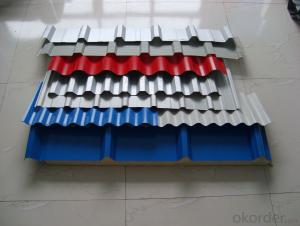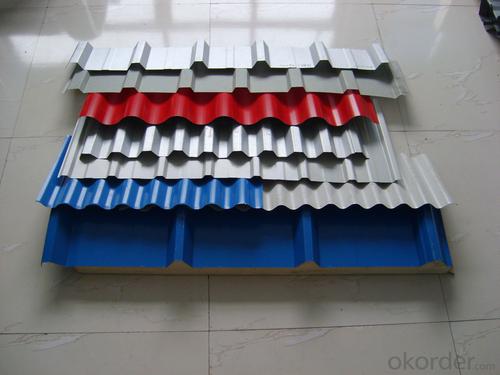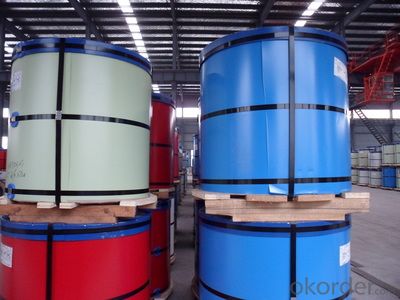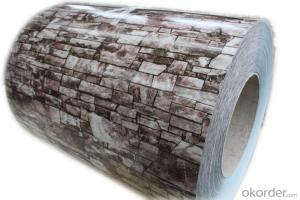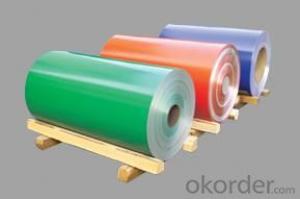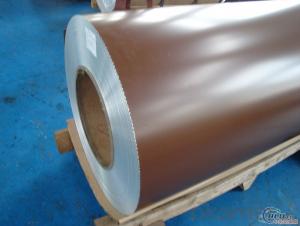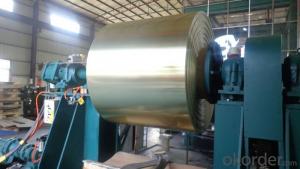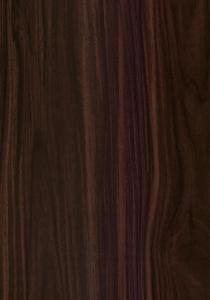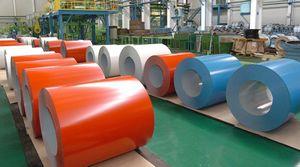3003 PE Painted Aluminum Coil for Making Sandwich Board
- Loading Port:
- Shanghai
- Payment Terms:
- TT OR LC
- Min Order Qty:
- 5 m.t.
- Supply Capability:
- 1000 m.t./month
OKorder Service Pledge
OKorder Financial Service
You Might Also Like
Specification
1. Structure of PE Painted Aluminium Coil for Making Sandwich Board Description
PE Painted Aluminium Coil for Making Sandwich Board is one semi-finished aluminium material. This coil can be rolled down to aluminium coil,sheet,circle ect. The alloy AA1050 is widly used in building, industry ect. Its weight is much lower than steel. So many customers choosed aluminium material instead of steel.
2. Specification of PE Painted Aluminium Coil for Making Sandwich Board
PE Painted Aluminium Coil for Making Sandwich Board | |
Main Specification | |
Alloy | AA1xxx (AA1050, AA1060, AA1070, AA1100 etc.) |
AA3xxx (AA3003, AA3004, AA3005, AA3105 etc.) | |
AA5xxx, AA6XXX (AA5052,AA5083, AA5754, AA6061, AA6062 etc.) | |
AA8xxx(AA8011, AA8006 etc.) | |
Temper | H14,H16, H18, H22, H24, H26, H32,O/F, T4, T6, T651 |
Thickmess | 0.01mm-100mm |
Width | 30mm-1700mm |
Standard | GB/T 3880-2006/ASTM |
Special specification is available on customer's requirement | |
3. Application of PE Painted Aluminium Coil for Making Sandwich Board
(1).Interior: wall cladding, ceilings, bathrooms, kitchens and balconies, shutters, doors...
(2).Exterior: wall cladding, facades, roofing, canopies, tunnels,column covers , renovations...
(3).Advertisement: display platforms, signboards, fascia, shop fronts...
4. Feature of PE Painted Aluminium Coil for Making Sandwich Board
Surfact Quality :
Be free from Oil Stain, Dent, Inclusion, Scratches, Stain, Oxide Dicoloration, Breaks, Corrosion, Roll Marks, Dirt Streaks and other defect which will interfere with use,
Mechenical Property:
Chemical Composite and Mechanical Property
5. Certificate of PE Painted Aluminium Coil for Making Sandwich Board
SGS and ROHS(if client request, paid by client), MTC(plant provided), Certificate of Origin(FORM A, FORM E, CO), Bureau Veritas and SGS (if client request, paid by client), CIQS certificate
6. Image of PE Painted Aluminium Coil for Making Sandwich Board
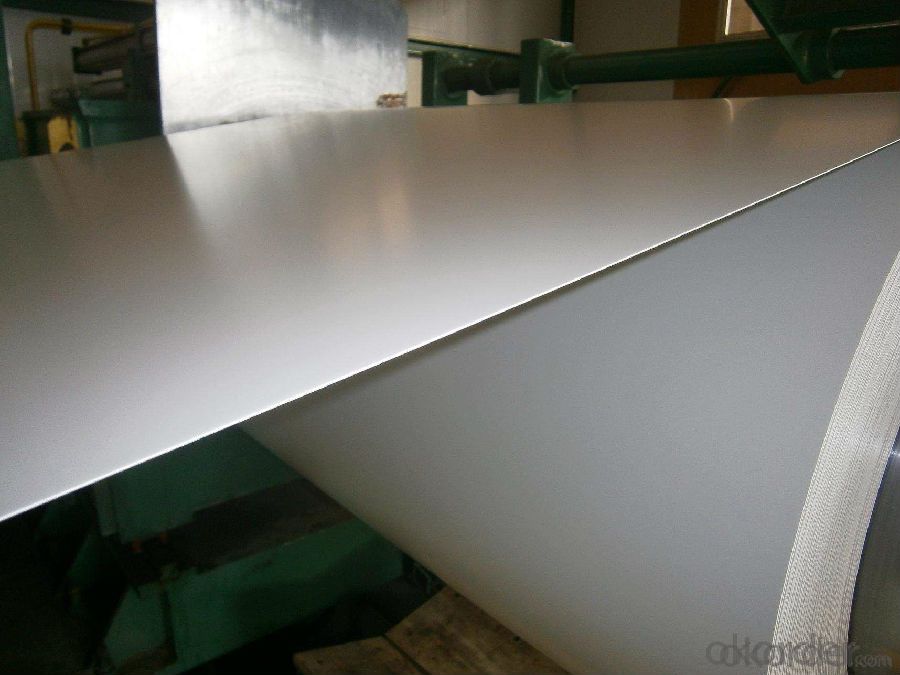
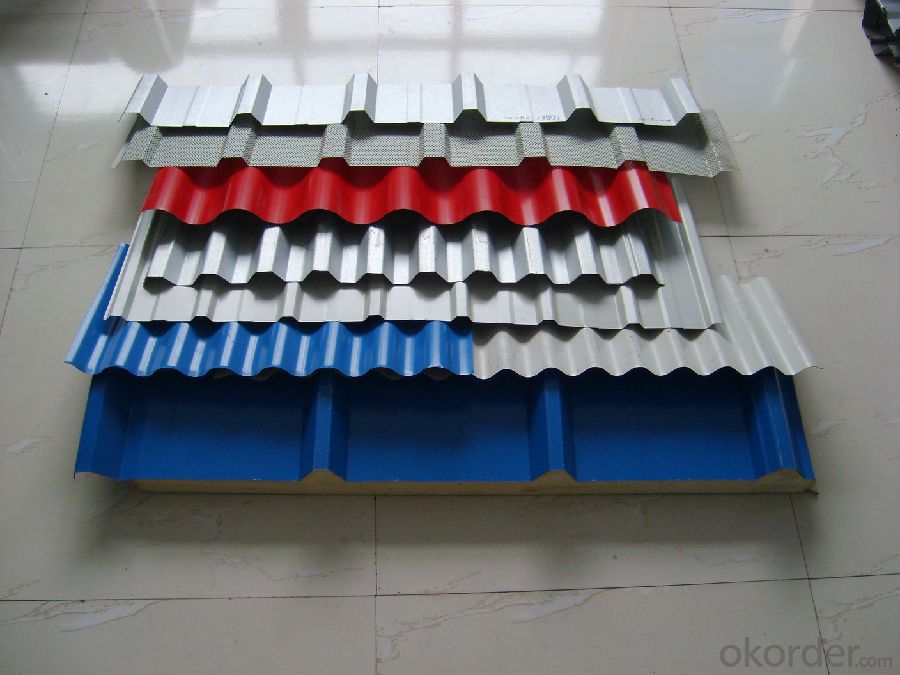
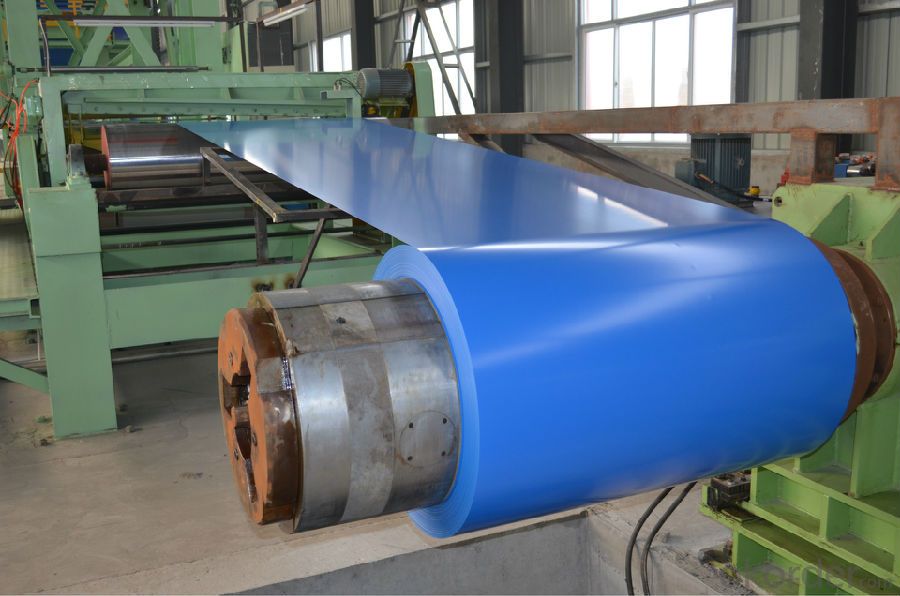
7. Package and shipping of PE Painted Aluminium Coil for Making Sandwich Board
First, plastic cloth with drying agent inside; Second, Pearl Wool ; Third, wooden cases with dry agent , fumigation wooden pallets, aluminum surface could cover blue PVC film
8. FAQ
1) What is the delivery time?
Depends on actual order, around 20 to 35 days
2) What is the QC system:
We have QC staff of 20 persons and advanced equipment, each production is with MTC traced from Aluminum ingot lot.
3) What market do you mainly sell to?
Australia, America, Asia, Middle East, Western Europe, Africa etc
- Q: Are aluminum coils suitable for architectural louvers?
- Yes, aluminum coils are suitable for architectural louvers. Aluminum is a popular choice for louvers due to its excellent corrosion resistance, lightweight nature, and high strength-to-weight ratio. Aluminum coils can be easily formed and fabricated into various shapes and sizes, making them ideal for creating aesthetically pleasing and functional louvers. Additionally, aluminum's durability ensures that the louvers can withstand harsh weather conditions and maintain their structural integrity over time. Overall, aluminum coils are a reliable and versatile material for architectural louvers.
- Q: The user is asking if it's possible to use a punching machine to create holes in aluminum coils.
- <p>Yes, you can use a punching machine to punch holes in aluminum coils. Punching machines are designed to cut or create holes in various materials, including metals like aluminum. However, the type of punching machine and the specific settings will depend on the thickness and hardness of the aluminum coils. For thicker or harder aluminum, a more robust machine with appropriate dies may be necessary. Ensure that the machine is capable of handling the material's properties to avoid damage or inefficiencies in the punching process.</p>
- Q: Is there any specific regulation or standard that dictates the weight of an aluminum coil?
- <p>Yes, there are regulations and standards that dictate the weight of aluminum coils. These are often set by industry standards such as ASTM (American Society for Testing and Materials) and EN (European Norm). The weight of an aluminum coil can vary depending on its thickness, width, and length, and manufacturers must adhere to these standards to ensure consistency and quality. For example, ASTM B 209 specifies the standard for aluminum and aluminum alloy sheet and plate, which includes weight limits. Compliance with these standards is crucial for the safety and performance of products that utilize aluminum coils.</p>
- Q: How are aluminum coils protected against UV exposure during storage?
- During storage, aluminum coils are typically safeguarded against UV exposure through the application of a protective coating or the use of UV-resistant packaging materials. UV degradation poses a significant risk to the coils, leading to discoloration, surface damage, and reduced performance. Consequently, manufacturers and distributors take special precautions to shield the coils from harmful UV rays. One popular approach involves applying a protective coating on the coil surface. This coating acts as a barrier between the aluminum material and UV radiation, preventing direct exposure. Usually, the coating consists of a specialized paint or lacquer that contains UV inhibitors. These inhibitors either absorb or reflect UV rays, minimizing damage to the coils. Furthermore, this protective layer preserves the aesthetic appearance of the coils and extends their lifespan. Aside from coatings, UV-resistant packaging materials can also be used to store aluminum coils. These materials are specifically designed to block or absorb UV radiation, creating a shield around the coils. Polyethylene films are a common choice for UV-resistant packaging, as they provide excellent UV protection. By storing the coils in such packaging, they are effectively safeguarded against direct sunlight and other sources of UV radiation. It is important to note that UV protection measures become particularly crucial during long-term storage or transportation, as the coils may be exposed to UV rays for extended periods. By implementing these protective measures, manufacturers and distributors ensure that the aluminum coils maintain their quality and performance, even when stored in environments with high UV exposure.
- Q: What industries utilize aluminum coils?
- There are several industries that utilize aluminum coils for various purposes. One of the major industries that extensively uses aluminum coils is the construction industry. Aluminum coils are commonly used for roofing, siding, and gutter systems due to their lightweight nature, durability, and resistance to corrosion. Additionally, the transportation industry also relies heavily on aluminum coils for manufacturing automotive parts, such as radiators, condensers, and heat exchangers, as aluminum is known for its excellent heat transfer properties. The packaging industry also utilizes aluminum coils for producing cans and containers due to their ability to preserve the freshness and quality of food and beverages. Moreover, the electrical industry relies on aluminum coils for manufacturing transformers, electrical conductors, and wiring, as aluminum is a good conductor of electricity. Lastly, the aerospace industry uses aluminum coils for constructing aircraft parts, such as wings, fuselage, and structural components, as aluminum provides strength while keeping the weight of the aircraft low.
- Q: Is it possible to utilize a punching machine to create holes in steel coils for decorative purposes?
- <p>Yes, you can use a punching machine to punch holes in steel coils for decoration purposes. Punching machines are designed to create precise holes in various materials, including steel. For steel coils, ensure the machine is capable of handling the thickness and hardness of the steel. It's important to select the right punch and die material, and consider the coil's strength and ductility. Always follow safety guidelines and machine specifications to prevent damage or injury.</p>
- Q: This question asks for methods to protect aluminum coils from damage during storage and transportation.
- <p>To prevent damage to your aluminum coil during storage or transportation, follow these guidelines: Store the coils in a dry and clean environment to prevent moisture and dirt accumulation. Ensure that the storage area is well-ventilated to avoid condensation. Use appropriate padding or separators between coils to prevent scratching or denting. Handle the coils with care, using proper lifting equipment to avoid dropping or mishandling. Secure the coils during transportation to prevent movement that could lead to damage. Keep the coils away from corrosive substances and extreme temperatures. Regularly inspect the coils for any signs of damage and address any issues promptly.</p>
- Q: I bought a house that is older with aluminum windows, and the last owner did not seem to clean them for quite some time. The aluminum frames are a silvery milky white color and my neighbors that have the same windows look like chrome. I have brushed these windows with scrub brushes and green scouring pads even aluminum wheel cleaner, now my frame is a clean milky grey color, it just isnt polished like my neighbor has it, his is like chrome. I have tried silver polishes and this doesn't remove the grey film either - i need something stronger. Can anyone help???
- Fistly give them a good clean, next get some marine polish-I've seen it at Halfords, and buff your window frames to a glossy shine.
- Q: Can aluminum coils be used in electrical or electronic applications?
- Yes, aluminum coils can be used in electrical or electronic applications. Aluminum is a good conductor of electricity and has excellent thermal conductivity, making it suitable for various electrical and electronic components such as transformers, inductors, and motors. Additionally, aluminum coils are lightweight, cost-effective, and have good corrosion resistance, making them a popular choice in these applications.
- Q: Are aluminum coils resistant to moisture?
- Indeed, moisture poses no threat to aluminum coils. Being inherently resistant to corrosion, aluminum possesses an innate capability to combat the detrimental effects of moisture and other environmental elements. Consequently, it becomes an exceptional option for endeavors where moisture resistance holds paramount importance, including HVAC systems, refrigeration units, and outdoor equipment. Furthermore, aluminum can be fortified with an assortment of protective coatings and treatments to augment its moisture resistance and prolong its lifespan. In summary, the durability and moisture-withstanding capacity of aluminum coils render them a dependable choice across diverse industries.
Send your message to us
3003 PE Painted Aluminum Coil for Making Sandwich Board
- Loading Port:
- Shanghai
- Payment Terms:
- TT OR LC
- Min Order Qty:
- 5 m.t.
- Supply Capability:
- 1000 m.t./month
OKorder Service Pledge
OKorder Financial Service
Similar products
Hot products
Hot Searches
Related keywords
